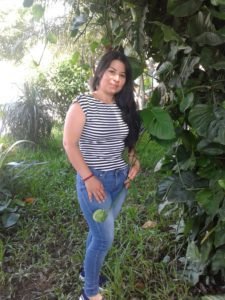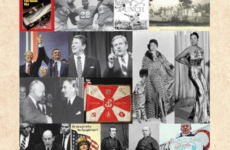By: Madison Schettler/Staffwriter
Since the 2016 election, immigration has been an extremely polarizing issue in the United States. For lifelong citizens, it may seem like the immigration debate is nothing more than red versus blue, or Donald Trump angrily tweeting about the border wall. However, it is difficult to understand the true implications of the immigration crisis without understanding the lives of immigrants themselves. The reasons they come, and the struggles they go through to stay here and make a life are all essential to understanding immigration in America.
I had the chance to speak with Roxy, a Salve Regina faculty member about her experience immigrating from El Salvador, and how her life has changed since then. Roxy is the housekeeper of Wakehurst, and has spoken about her life at multiple panels over the years, including Uniting Not Dividing, and Strangers in a Strange Land.
She is an irreplaceable member of the Salve community, and says that she always tries to connect with students, because she “sees her daughter and son in all of the students, and that is what motivates [her] to help everybody.” She says she wants her kids “wherever they go, to find another Roxy, willing to help others for nothing in return.” Roxy also tries to help everyone she can here at Salve, because when she immigrated to the United States, she “had such a bad experience with so many people, so [she] choose not to focus on that and just to keep going and help others in different ways.”
Roxy emigrated to the U.S. from El Salvador, alone, after she lost her first child. She says: “I lost him because I was being harassed by my neighbor. He used to throw rocks under my roof, he used to shoot bullets in the air, and that stress caused me to lose the baby… after that happened I decided I have nothing else here. I felt lost, I had nothing, so I went to the U.S trying to build a family in a safer place.”
She described how she would try to get help from the police before she lost her baby, but it was her word against her neighbor’s, and as a young woman all alone, the police tended to believe the man. She came to the U.S. not knowing where she was going, knowing no English, and only knowing a handful of people in the entire country. She explained that she worked hard to learn English little by little, and that her desire to fit in made her want to learn more.
Once she was a full resident, she decided to work towards her citizenship. Roxy explained how difficult the preparation for the citizenship test was, and how she constantly studied in the time leading up to it. She said that the work she put in to pass the test “shows people that we [immigrants] don’t come here to ask for things, we come here to work for what we want.”

Roxy (pictured above) works in the Wakehurst Student Center. She has spoken about her experiences on several panels here at Salve.
Despite all of her hard work, and even passing the citizenship test, Roxy said that she never got the satisfaction of passing, because she was treated so badly in her interview. She said: the first thing that came to my mind was ‘I’m going to be deported,’ because the way [the agent] was doing the interview, it seemed she enjoyed making me upset.” However, two weeks later, it was confirmed that Roxy could become a citizen. Now, she continues to try to spread kindness through connecting with students on a daily basis, and spread her story through participating in different panels at Salve.
Even though she is now a citizen, Roxy’s still feels the effects of her immigration. She said that after the 2016 election, she felt a difference in how people treated her “right away.” When I asked why she thought that was, she explained that people now feel freer to say whatever they want now, citing an incident where a woman came up to her in the grocery store, telling her and her husband to “speak English, you’re in America.”
Although it is difficult to imagine such instances disappearing altogether any time soon, Roxy thinks that the best way to solve these issues is to get to know people and their stories. She said: “People need to know we’re not bad people, they think illegal immigrants come here just to take American’s jobs. But we come from so far away to a safe place, to a better environment, to our family, and people don’t see that. I think one by one, if I share with you my situation, and then you share it with someone else, it’s like chain, and you can change things. Most of the time we don’t take the opportunity to get to know the people around us, but we’re all different, we all have something to learn from each other.”
To hear more about Roxy’s story, attend the Multicultural Education Week’s Stranger in a Strange Land Panel, on Tuesday, October 23rd at 7PM in DiStefano Lecture Hall, where she will be speaking.














